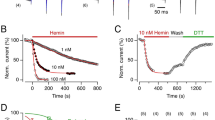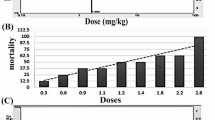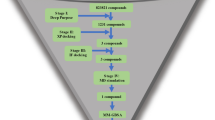Abstract
SEVERAL coumarin and indanedione drugs are capable of inducing hypoprothrombinæmia, presumably by interfering with the cofactor role of vitamin K in prothrombin synthesis. This role of vitamin K, probably involving electron transport, can be competitively inhibited by coumarins, and the inhibition competitively overcome by large doses of vitamin K (ref. 1).
This is a preview of subscription content, access via your institution
Access options
Subscribe to this journal
Receive 51 print issues and online access
$199.00 per year
only $3.90 per issue
Buy this article
- Purchase on SpringerLink
- Instant access to the full article PDF.
USD 39.95
Prices may be subject to local taxes which are calculated during checkout
Similar content being viewed by others
References
Link, K. P., Harvey Lectures, 39, 162 (1944).
Green, D. M., and Lester, R. L., Fed. Proc., 18, 987 (1959).
Sastry, P. S., Jayaraman, J., and Ramasarma, T., Nature, 189, 577 (1961).
Chenkin, T., Dayton, P. G., Weisberg, L. G., and Weiner, M., Exp. Med. and Surg., 17, 219 (1960).
Author information
Authors and Affiliations
Rights and permissions
About this article
Cite this article
WEINER, M., CHENKIN, T. & DAYTON, P. Lack of Effect of Coenzyme Q10 on Coumarin-induced Hypoprothrombinæmia. Nature 191, 711 (1961). https://doi.org/10.1038/191711a0
Issue date:
DOI: https://doi.org/10.1038/191711a0
This article is cited by
-
Kofler's quinone and ubiquinone assayed for vitamin K activity by the curative blood clotting method
Zeitschrift für Ernährungswissenschaft (1962)



